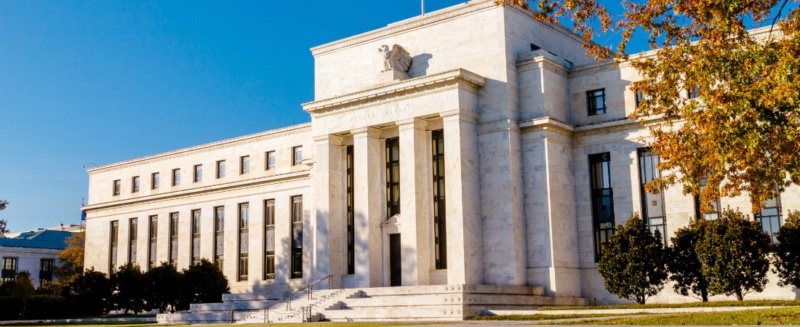“Good afternoon. Today, the Federal Open Market Committee decided to raise the target range for the federal funds rate by 1/4 percentage point, bringing it to 3/4 to 1 percent. Our decision to make another gradual reduction in the amount of policy accommodation reflects the economy’s continued progress toward the employment and price stability objectives assigned to us by law. For some time the Committee has judged that, if economic conditions evolved as anticipated, gradual increases in the federal funds rate would likely be appropriate to achieve and maintain our objectives. Today’s decision is in line with that view and does not represent a reassessment of the economic outlook or of the appropriate for monetary policy,” said Federal Reserve Bank Chair Janet Yellen.
The move was expected, although it is only the third increase in the Federal Funds rate since the Great Recession began nearly 10 years ago. The stock market moved higher in response, with the Dow Jones Index closing up nearly 113 points, to 20,950.
Real estate industry observers generally noted that the interest rate increase had been expected, and that another 50 basis point increase (one-half of one percent) is expected through 2017.
“Rising inflation will predominantly dictate the next monetary policy decision, but another short-term rate hike should be expected by the end of the summer. Right now, rents and housing costs are increasing faster than other components because of the stubborn housing shortages in much of the U.S. To contain inflation and slow the pace of future rate hikes, more home construction is needed now,” noted Lawrence Yun, Chief Economist of the National Association of Realtors.
“Today’s FOMC decision to increase the target rate and the updated Fed officials’ economic projections that continued to show a median of three hikes this year are in line with our expectations in the March forecast released earlier today. We believe the Fed could stay on course to achieve its dual mandate with a gradual monetary normalization, which would allow housing to continue to expand. Given continued solid job growth and recent income gains, we believe this pace of rate increase will not derail the ongoing housing recovery,” noted Doug Duncan, Chief Economist of Fannie Mae.
“Today’s widely anticipated interest rate increase is a reflection on the broad-based strength of the U.S. economy, and already partially priced into mortgage markets,” said Svenja Gudell, Chief Economist at Zillow. “Rising rates pose just a modest headwind for home shoppers in the priciest housing markets. For the typical American home shopper, implications of today’s vote should only increase their monthly mortgage payment by about $16, or about $197 per year. Tight inventory remains a much more pressing concern for home shoppers today, a situation that is unlikely to ease in the months ahead.”
Added Erin Lantz, Vice President of Mortgages for Zillow Group: “While those looking to buy a home are understandably concerned about the path of rates ahead, there is no need for homebuyers to panic over rising rates. It’s important to remember that the Fed’s decision to hike short-term rates does not have a direct impact on mortgage rates. While long-term rates are related to the Fed target fund, a 25 basis point movement in the federal funds rate does not necessarily result in a 25 basis point increase to mortgage rates. On Zillow, we’ve seen mortgage rates rise steadily from early March, indicating that markets have already priced in today’s all-but-certain FOMC vote.”
Mark Fleming, First American Chief Economist, noted that current mortgage rates had already risen to 4.21 percent last week, in expectation of the announcement. He said, however, that he believes many existing homeowners will now have a “financial disincentive to sell because they would lose their lower than prevailing mortgage rates in doing so — the so-called rate lock-in effect.”
While that would put pressure on buyers, because it means fewer homes will be available for sale, Fleming believes that “affordability remains high and our survey data shows that mortgage rates would have to be significantly higher to have any meaningful impact. The house buying power that borrowers have, even with rates below five percent, still remains historically strong. Rising rates are not expected to slow down demand this spring homebuying season.”
Ilyce Glink is the Publisher of ThinkGlink.com and the Founder/CEO of Best Money Moves.
Interest rates are rising. This afternoon, the Federal Reserve Bank announced an increase in the federal funds rate of 0.25%, and indicated more rate hikes would follow.







Leave A Comment